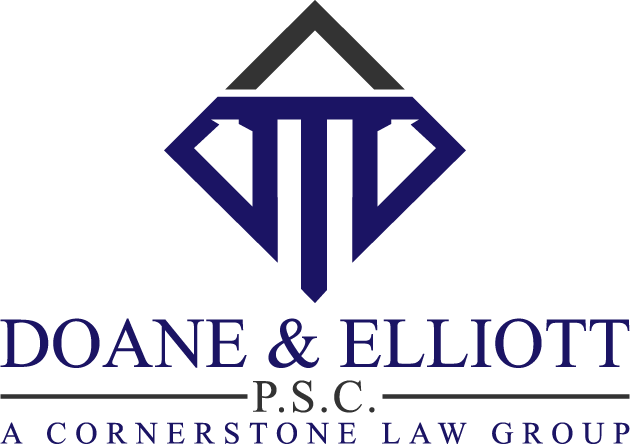Protecting Your Church and Your Ministry - Did you know?
Did you know that the Supreme Court of the United States recently acknowledged that ministry employee handbooks and employment agreements, along with the way a ministry defines an employee’s role in the organization, can be important in protecting your church and/or ministry against litigation and potentially adverse damages awards?
In Our Lady of Guadalupe School v. Morrissey-Berru, released July 8, 2020, the Court examined the scope of religious organization’s exemption from the requirements of Title VII in the workplace. Title VII of the Civil Rights Act of 1964, as amended, is the federal statute that prohibits discrimination in employment based on a person’s race, color, religion, national origin, and sex. Only three weeks before the release of Our Lady of Guadalupe School, the Court released its opinion in Bostock v. Clayton County (released June 15, 2020) which created a monumental shift in Title VII employment actions. In Bostock, the Court declared that employment decisions based on a person’s sexual orientation or transgender status can expose the organization to a claim under Title VII. Prior to Bostock, the federal appellate circuits were split as to whether discrimination based upon sexual orientation or transgender status gave rise to liability under Title VII. In Bostock, however, the Court explicitly held that an employer who fires someone for being homosexual or transgender has discriminated against that individual “because of such individual’s sex” in violation of Title VII. With that declaration, the Court essentially elevated sexual orientation and transgender status to a protected class in the workplace.
Encouragingly, and perhaps an indication that the Court in Bostock was anticipating its subsequent decision in Our Lady of Guadalupe School, Justice Gorsuch, writing for the majority of the Court, acknowledged in Bostock that religious organizations may still find certain protections for employment decisions under (1) the express statutory exception for religious organizations found in Title VII, (2) potential protections found in the Religious Freedom Restoration Act of 1993 (RFRA), and (3) under the First Amendment to the Constitution and the common law “ministerial exception” for religious organizations formally recognized in Hosanna-Tabor Evangelical Lutheran church and School v. EEOC (2012) . It was this latter exception – the ministerial exception - that the Court discussed in the Our Lady of Guadalupe School case.
Our Lady of Guadalupe School involved two Catholic schools and their ability to decide employment matters relating to their teachers. From the outset of the case, the Court, citing a Supreme Court case from 1952, acknowledged the long-standing principle that the First Amendment protects the right of religious organizations to “decide for themselves, free from state interference, matters of church government as well as those of faith and doctrine.” The Court then discussed the ministerial exception recognized in the Hosanna-Tabor case and stated that, while this exception has been tied to the title of an employee and his/her educational background in some instances, “what matters, at bottom, is what an employee does.” This distinction can prove persuasive, because the Court further explained that “what qualifies as ‘ministerial’ is an inherently theological question, and thus one that cannot be resolved by civil courts through legal analysis.” Recognizing that a “religious institution’s explanation of the role of [its] employees in the life of the religion in question is important,” the Court held that the schools’ teachers were covered under the ministerial exception. In its analysis, the Court looked to the “abundant record evidence that [the teachers] performed vital religious duties” including the schools’ employment agreements with the teachers and the respective faculty handbooks. These documents generally explained the schools’ Christian missions, the requirement that the teachers serve that mission and their duties regarding religious instruction, worship, and personal modeling of the faith.
“What matters, at bottom, is what an employee does.”
Taken as a whole, Our Lady of Guadalupe affirms the protections allowed churches and ministries to make important employment decisions based on their foundational beliefs as articulated in statements of faith and codes of conduct. While these cases are always fact-intensive, this case emphasizes the importance of reviewing and updating organizational governing documents, employee handbooks, and related statements of faith and final authority on matters of faith. Now more than ever, churches and ministries must be diligent in their attempts to protect themselves from liability - As Justice Gorsuch noted in Bostock, the protections afforded religious organizations found in Title VII, RFRA, and the First Amendment are “for future cases” and “merit careful consideration” by the Court.
Check out our blog next week for a discussion on RFRA and its potential impact on business owners and their religious convictions in light of Bostock v. Clayton County.
This article is for general purposes only and should not be considered legal advice. If you would like to speak to the attorneys at Doane & Elliott, P.S.C. about conducting a comprehensive review of your governing documents or any other legal issue, please call (502) 225-3290 or email them at either matt@cornerstonelawky.com or clint@cornerstonelawky.com.
